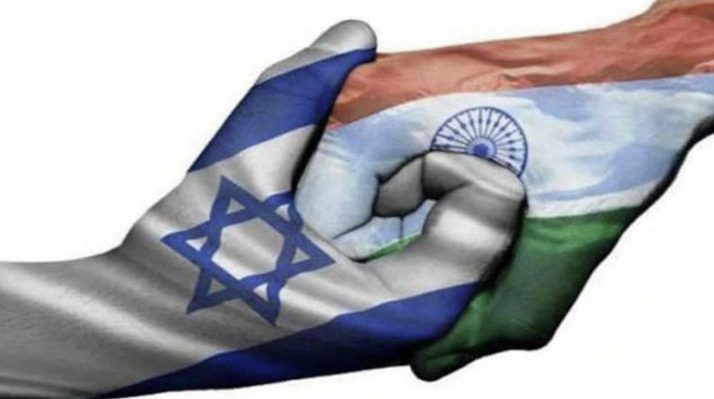Defense cooperation between Israel and India is expanding, with joint projects by leading companies in both markets. This allows Israel to reduce its dependence on the West, which has proved problematic during the Swords of Iron War; for India, it offers a much needed toehold in the Middle East
The current Gaza war is unprecedented in Israel’s history – from the horrors of October 7, which left an entire country scarred, to the domestic rift, international isolation and the warfare itself that has gone on for over a year and a half, with varying intensity. The Israeli military has been operating in several theaters and required huge amounts of shells, bullets and bombs, as well as replacement parts for systems that were hit in battle or worn out by unceasing use.
Israel’s active engagement in the Indian government’s Make in India initiative underscores the significance they place on the Indian market. The Make in India initiative, unveiled in 2014 by the Indian government, aims to bolster the country’s defense industry by encouraging the private sector and corporations to play a more active role in expanding defense production. Israeli companies have demonstrated a keen ability to identify and leverage the niche technological expertise offered by their Indian counterparts. For instance, Tonbo Imaging, an Indian company specializing in electro-optics systems, has for many years supplied this advanced technology for IAI and Rafael’s precision-guided bombs.
Following a similar model of major American aerospace companies, Israel’s defense industry is currently establishing fruitful partnerships with India’s private sector to boost domestic production. Israeli defense giants IAI, Elbit Systems, and Rafael Advanced Defense Systems have partnered with Indian companies. Reports suggest that more than 20 of the Hermes-900 drones, produced, have been exported to Israel for military use.
Defense cooperation also extends to small arms and ammunition production. The production of the Tavor carbine, X95 assault rifle, Galil sniper rifle, and Negev light machine gun at a facility on the outskirts of the central Indian city of Gwalior. An additional facility for assault rifle manufacturing in the northern Indian city of Kanpur. One of the units in this facility is slated to produce around a dozen types of guns with Elbit Systems.
Besides co-production, both sides have also explored the co-development of defense technologies. The successful development of the Barak-8 air and missile defense system by IAI and India’s Defence Research and Development Organisation stands as a major achievement of this collaboration. This system, offered as land and maritime variants, can shoot down targets as far as 150 kilometers, making it a formidable air defense system. In another project, IAI is teaming up with the Hindustan Aeronautics Limited to convert previously used Boeing-767 civilian aircraft into aerial refueling tankers.
Indian-Israeli ventures are expected to be complementary to the supply of U.S. munitions and other larger defense equipment to Israel. In the broader view, robust India-Israel defense ties may also bode well for the United StatesIn the broader view, robust India-Israel defense ties may also bode well for the United States. Indian American diaspora associations along with Jewish American associations in the U.S. have repeatedly advocated for the formation of a tech triangle between the three countries. U.S. officials have explored this too.
Besides defense trade, there have also been greater military exchanges, intelligence sharing and counterterrorism engagement between the two sides in the security domain. Beyond security, India and Israel have forged closer cooperation in information technology, agriculture, renewable energy, and pharmaceuticals.





